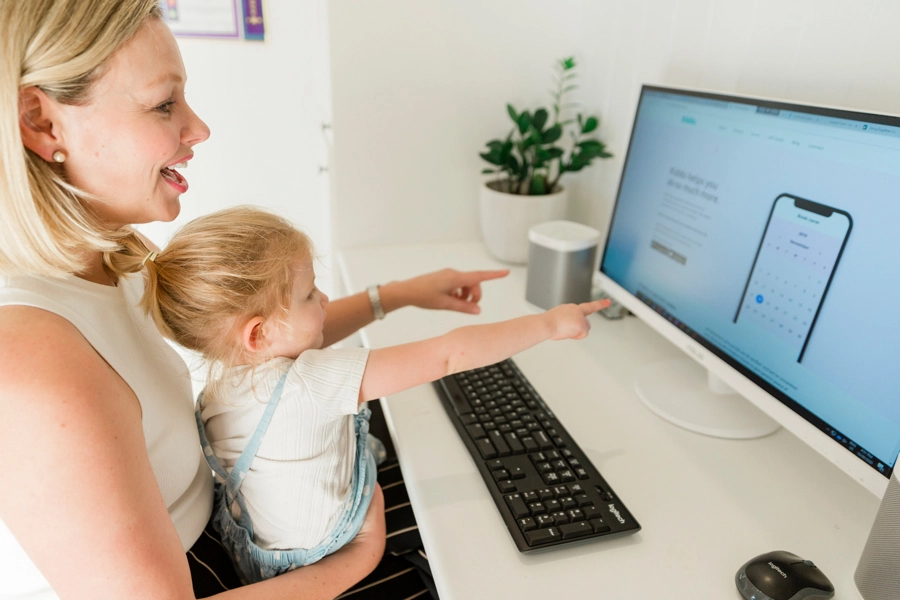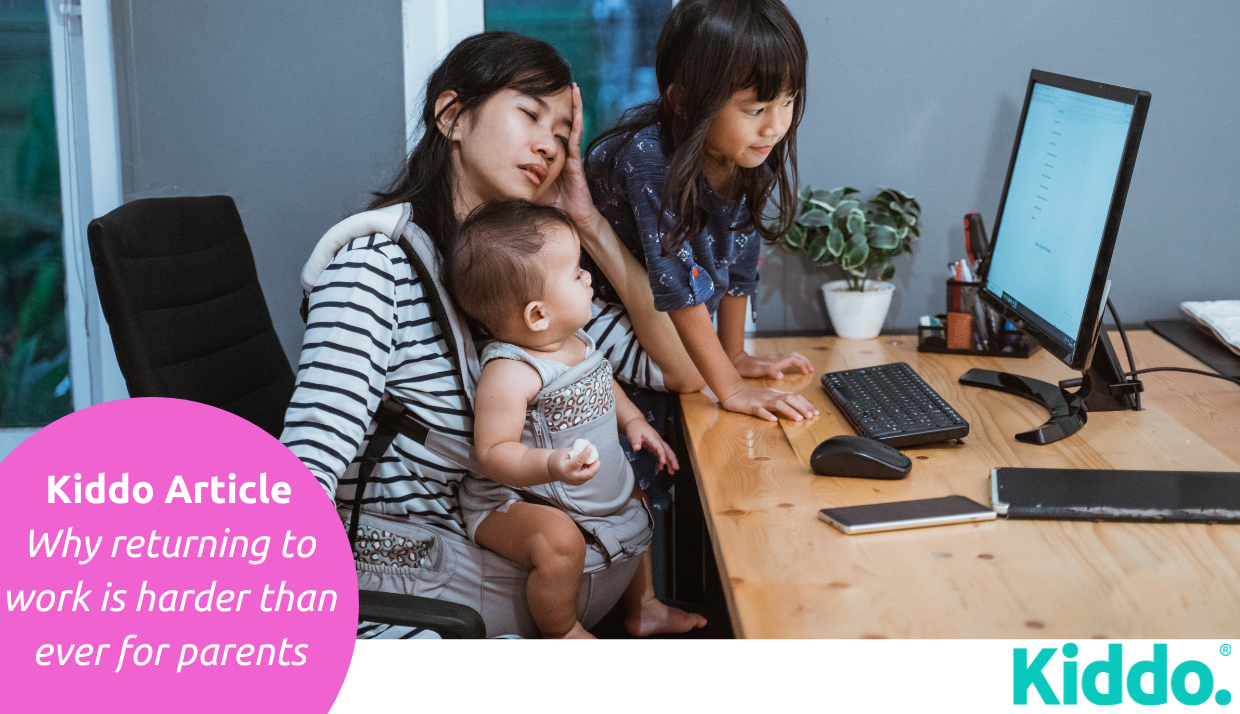How Employers can do more
For many Australian parents, returning to work after parental leave and having children is a major life transition, often filled with conflicting emotions, logistical challenges, and practical concerns. Balancing career responsibilities with childcare needs can feel overwhelming, especially when access to support is limited. According to recent Australian Bureau of Statistics data, approximately 40% of mothers return to work within a year after giving birth, often part-time, as they navigate their new roles as working parents.
This journey isn't easy, and it highlights the need for comprehensive support systems, flexible work environments, and targeted initiatives like Kiddo Corporate Care to truly assist families as they reintegrate into the workforce.
The Reality: Why Returning to Work is Harder Than Ever
Returning to work for parents often involves:
- Emotional Strain – Transitioning back to work can stir mixed feelings for parents, with many feeling torn between professional aspirations and family commitments. The adjustment can be emotionally challenging, especially for mothers, who often carry a heavier mental load and may experience “working mum guilt.” According to a study by La Trobe University, more than 60% of working parents experience high levels of stress as they try to manage these responsibilities.
- Childcare Challenges – Reliable childcare remains a critical barrier. Despite government subsidies, the average weekly cost of childcare in Australia can be as high as $550 for two days per week, making quality care inaccessible for many families. Long waiting lists, fluctuating hours, and limited options can add to the challenge. This pressure often impacts women the most, as they frequently bear the responsibility of coordinating childcare arrangements.
- Workplace Rigidity – Many workplaces have yet to embrace flexible arrangements. Although the pandemic accelerated the adoption of remote work, less than 35% of Australian employers offer flexible hours that accommodate school pick-ups or family emergencies, making it difficult for parents to fully meet both their professional and personal obligations.
- Financial Pressure – Adding to these challenges, many families face financial strain as they try to balance the costs associated with raising children alongside their career ambitions. According to data from the Australian Institute of Family Studies, households with children spend an average of 19% of their total income on childcare, often making full-time work economically unfeasible for one partner.
What More Can Be Done to Support Working Parents
While some companies have made strides, there’s still much more that can be done across the board. Here are some key steps that could help bridge the gap and make returning to work a manageable process for Australian parents:
- Expansion of Remote Work Options and Flexible Hours – By allowing parents to work from home and setting hours that fit family routines, companies can help parents achieve better work-life balance and reduce commute-related stress.
- Enhanced Support Programs and Parental Communities – Creating supportive, resource-rich communities within companies where parents can connect, share advice, and seek guidance can make a world of difference. This could also include access to parental coaching, mental health services, and workshops on balancing work and family life.
- Access to Temporary, Flexible Care Options – Flexible work sometimes requires flexible childcare. Services like Kiddo Corporate Care provide companies with an option to support working parents by offering childcare solutions that accommodate last-minute needs, helping parents find trusted sitters or support workers when unexpected work or family demands arise.

How Kiddo Corporate Care Can Make a Difference
Kiddo Corporate Care is designed to help businesses actively support their employees with children, providing a network of vetted childcare professionals available on demand. By integrating Kiddo Corporate Care into their benefits offerings, companies can:
- Provide Peace of Mind – Kiddo’s app allows parents to find trusted and vetted sitters, which can ease the burden for working parents. They know they have reliable, safe childcare solutions for sudden work commitments, school holiday coverage, or other events.
- Boost Productivity and Employee Retention – When parents feel secure and supported in balancing family and work, they’re more engaged and productive in their roles. Studies have shown that companies with family-friendly policies experience significantly lower turnover rates, benefiting both employees and employers.
- Offer Flexibility for Unpredictable Situations – From school closures to unplanned meetings, Kiddo Corporate Care provides support when parents need it most, reducing the stress of balancing last-minute work and family demands.
The Future of Family-Friendly Workplaces in Australia
Supporting working parents is more than just a “nice-to-have” benefit—it's an essential factor for companies striving to create an inclusive, resilient workforce. As more businesses recognise the unique challenges faced by working parents, we can expect to see an increase in flexible work policies, family-focused initiatives, and partnerships with organisations like Kiddo Corporate Care. These changes won’t just help parents; they’ll lead to healthier, more productive workplaces where everyone can thrive.
By prioritising these initiatives, companies contribute not only to their own success but also to the well-being of Australian families, providing a framework for a more balanced, supportive society. And for parents, knowing that their employer has their back can make all the difference on the challenging but rewarding path back to work.
Discover how Kiddo Corporate Care can help your company support working parents—get in touch today!
Read more of our articles:
Boost employee productivity with Kiddo Corporate Care | How Kiddo can support Working Families






